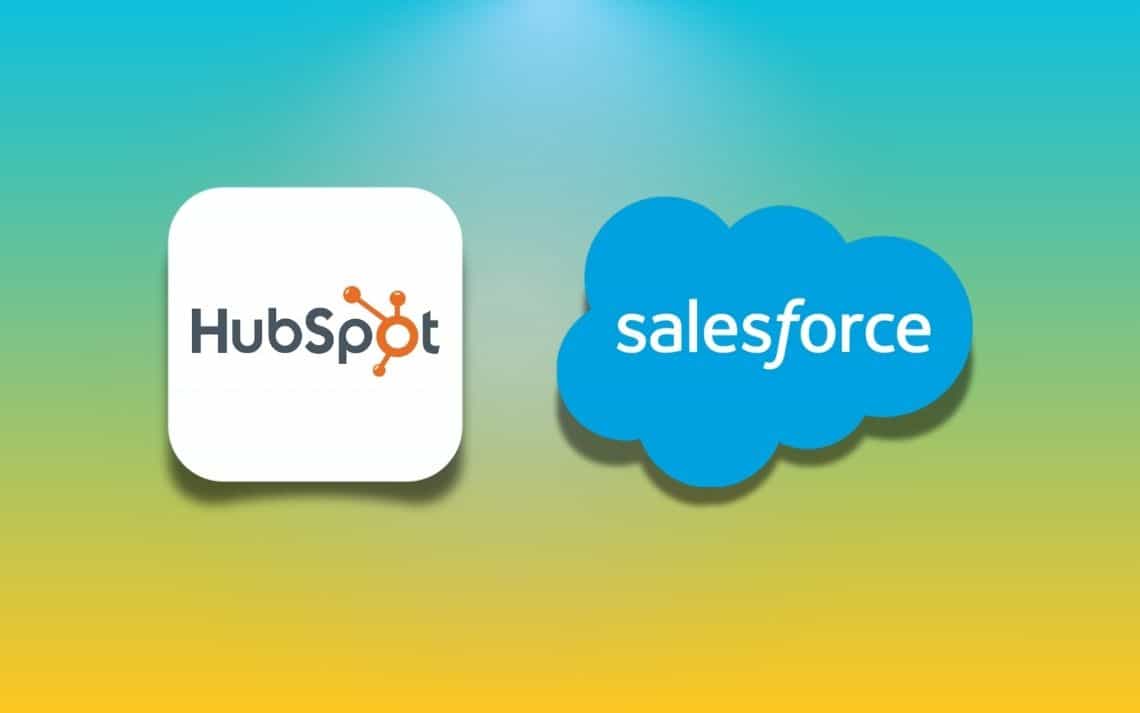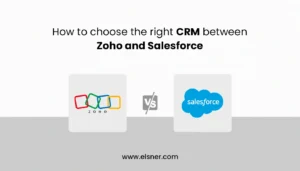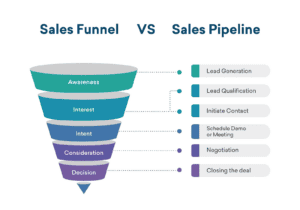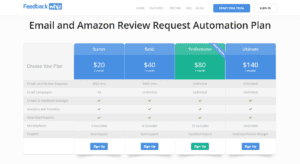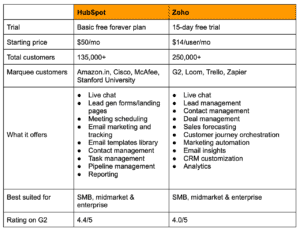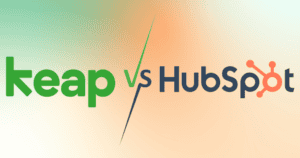HubSpot vs. Salesforce: Which CRM is Right for Your Business?
Find out whether HubSpot or Salesforce is the ideal customer relationship management solution for your business needs by comparing their features and benefits.
Introduction
Selecting the right customer relationship management (CRM) software is crucial for businesses aiming to enhance customer relationships, streamline operations, and drive sales growth. HubSpot and Salesforce are two leading CRM platforms, each offering robust features tailored to various business needs. But which one is the best fit for your organization? This comprehensive comparison will delve into their features, pricing, integrations, and user experiences to help you make an informed decision.
Overview of HubSpot and Salesforce
Before diving into specifics, let’s briefly introduce both platforms.
HubSpot CRM
HubSpot CRM is a free, user-friendly platform designed to help businesses manage customer relationships effectively. It offers tools for contact management, sales pipeline visibility, email integration, and real-time analytics. HubSpot also provides additional Marketing, Sales, and Service Hubs that can be integrated for enhanced functionality.
Salesforce
Salesforce is a leading CRM solution known for its extensive customization and scalability. It offers a wide range of features, including advanced analytics, sales automation, marketing integration, and customer service tools. Salesforce caters to businesses of all sizes but is particularly popular among medium to large enterprises.
Feature Comparison
Understanding the features each platform offers can help you determine which one aligns with your business requirements.
Contact and Account Management
Efficient contact management is fundamental to any CRM.
HubSpot CRM
- Unified Contact Database: Centralize all customer interactions and information.
- Email Tracking: Monitor email opens and clicks for better follow-up.
- Lead Capture Forms: Easily create forms to capture leads directly into the CRM.
Salesforce
- Advanced Contact Management: Manage contacts with detailed account hierarchies.
- Opportunity Management: Track deals with comprehensive insights.
- Collaboration Tools: Use Chatter for team collaboration on accounts and opportunities.
Summary: HubSpot excels in simplicity and ease of use, while Salesforce offers more advanced contact and account management features suitable for complex organizations.
Sales Pipeline Management
Managing your sales pipeline effectively can boost conversion rates.
HubSpot CRM
- Visual Pipeline: Drag-and-drop interface to move deals through stages.
- Deal Tracking: Monitor deal progress with real-time updates.
- Custom Pipelines: Create multiple pipelines for different products or services.
Salesforce
- Advanced Forecasting: Predict sales with AI-driven insights.
- Territory Management: Assign regions and manage sales territories.
- Quotation and Order Management: Generate quotes and process orders within the CRM.
Summary: Salesforce provides more advanced sales management features, while HubSpot offers an intuitive pipeline suitable for smaller teams.
Customization and Scalability
The ability to customize and scale is essential for growing businesses.
HubSpot CRM
- Custom Fields and Properties: Add fields to capture specific information.
- Integrations: Seamlessly integrate with HubSpot’s Marketing, Sales, and Service Hubs.
- User Permissions: Control access levels for different team members.
Salesforce
- Extensive Customization: Customize modules, fields, page layouts, and workflows.
- AppExchange Marketplace: Access thousands of third-party apps and integrations.
- Scalability: Built to support large enterprises with complex needs.
Summary: Salesforce offers unparalleled customization and scalability, while HubSpot provides straightforward customization suitable for small to medium businesses.
Automation Capabilities
Automation saves time and ensures consistency.
HubSpot CRM
- Email Sequences: Automate follow-up emails.
- Workflow Automation: Trigger actions based on contact behavior.
- Meeting Scheduling: Integrate calendars for easy appointment setting.
Salesforce
- Process Builder and Flow: Create complex automation processes.
- Einstein AI: Utilize AI for predictive analytics and automation.
- Macros: Automate repetitive tasks within the CRM.
Summary: Salesforce provides more advanced automation tools, including AI capabilities, while HubSpot offers user-friendly automation suitable for most businesses.
Reporting and Analytics
Access to real-time data helps in making informed decisions.
HubSpot CRM
- Customizable Dashboards: Tailor dashboards to display key metrics.
- Sales Analytics: Track team performance and deal progression.
- Marketing Analytics: Measure campaign performance if using Marketing Hub.
Salesforce
- Advanced Analytics: Utilize Einstein Analytics for deep insights.
- Custom Reports and Dashboards: Create complex reports with multiple data sources.
- Real-Time Data: Access live data across all business functions.
Summary: Salesforce excels in advanced analytics and reporting, while HubSpot provides robust but more straightforward analytics tools.
Integration and Compatibility
Integration with existing tools enhances productivity.
HubSpot CRM
- Email Integration: Sync with Gmail, Outlook, and other email clients.
- Third-Party Apps: Integrate with Slack, Zapier, and more.
- HubSpot Suite: Seamless integration with other HubSpot products.
Salesforce
- AppExchange: Access to thousands of integrations and applications.
- API Access: For custom integrations and development.
- Enterprise Systems Integration: Connect with ERP, finance, and other enterprise systems.
Summary: Salesforce offers broader integration capabilities suitable for complex environments, while HubSpot focuses on seamless integration within its ecosystem.
Pricing Comparison
Budget is a crucial factor when selecting a CRM.
HubSpot CRM
- Free Plan: Includes basic CRM features suitable for small businesses.
- Sales Hub Starter: Starts at $50/month for two users.
- Sales Hub Professional: $500/month for up to five users.
- Scaling Costs: Costs increase with added features and contacts.
Salesforce
- Sales Cloud Essentials: Starts at $25/user/month.
- Professional: $75/user/month.
- Enterprise: $150/user/month.
- Additional Costs: Extra for add-ons like Marketing Cloud, Service Cloud, and third-party apps.
Summary: HubSpot offers a free entry point but can become expensive with scaling, while Salesforce has a higher starting cost but offers extensive features.
Pricing Comparison Table
| Plan | HubSpot CRM | Salesforce |
|---|---|---|
| Free | Yes (unlimited users) | No |
| Entry-Level Paid | $50/month (2 users) | $25/user/month |
| Professional Level | $500/month (5 users) | $75/user/month |
| Enterprise Level | $1,200/month (10 users) | $150/user/month |
| Additional Costs | Marketing, Service Hubs, etc. | Add-ons, third-party apps |
Prices are subject to change; always check the official websites for the latest information.
User Experience and Support
Ease of use and customer support are vital for smooth operations.
HubSpot CRM
- User Interface: Clean, intuitive, and easy to navigate.
- Customer Support: Email and chat support; phone support for higher-tier plans.
- Training Resources: Extensive library of tutorials, webinars, and the HubSpot Academy.
Salesforce
- User Interface: Powerful but with a steeper learning curve.
- Customer Support: 24/7 support available with Premier Support plans.
- Training Resources: Offers Trailhead, an interactive learning platform.
Summary: HubSpot is praised for its user-friendly interface, while Salesforce provides comprehensive support and training but may require more time to master.
Pros and Cons
Understanding the strengths and weaknesses can help in decision-making.
HubSpot CRM
Pros:
- Free to start with essential features.
- User-friendly interface suitable for beginners.
- Seamless integration with HubSpot’s Marketing and Sales Hubs.
Cons:
- Costs can escalate with added features and contacts.
- Less customization compared to Salesforce.
- Limited advanced features for large enterprises.
Salesforce
Pros:
- Extensive customization and scalability.
- Advanced features suitable for large organizations.
- Wide range of integrations and third-party apps.
Cons:
- Higher initial cost.
- Steeper learning curve.
- Customization may require technical expertise.
Ideal Use Cases
- HubSpot CRM: Ideal for small to medium-sized businesses looking for an easy-to-use CRM with strong marketing integrations.
- Salesforce: Suited for medium to large enterprises that require extensive customization, advanced features, and scalability.
Conclusion
Both HubSpot and Salesforce are powerful CRM platforms, each with unique strengths. HubSpot CRM offers a user-friendly experience with seamless integration into marketing tools, making it ideal for businesses focusing on inbound marketing and looking for quick deployment. Salesforce, on the other hand, provides advanced features, extensive customization, and scalability, suitable for larger organizations with complex needs.
Assess your business size, requirements, budget, and growth plans to determine which CRM aligns best with your objectives.
FAQs
1. Can I switch from HubSpot CRM to Salesforce or vice versa?
Yes, both platforms allow data import and export. However, migrating between CRMs can be complex and may require professional assistance.
2. Does HubSpot CRM offer enterprise-level features?
HubSpot offers enterprise plans with advanced features, but Salesforce generally provides more extensive enterprise capabilities.
3. Is Salesforce suitable for small businesses?
While Salesforce can be used by small businesses, its complexity and cost often make it more suitable for medium to large enterprises.
4. Do both CRMs offer mobile apps?
Yes, both HubSpot and Salesforce provide mobile apps for iOS and Android devices, allowing you to manage your CRM on the go.
5. Can I customize the CRM according to my business processes?
- HubSpot CRM: Offers customization options but is less extensive compared to Salesforce.
- Salesforce: Provides deep customization capabilities, including custom objects and workflows.
6. How do the integrations differ between HubSpot and Salesforce?
- HubSpot CRM: Seamless integration within the HubSpot ecosystem and popular third-party apps.
- Salesforce: Extensive integrations through AppExchange, suitable for complex enterprise environments.
7. Which CRM offers better customer support?
Both offer robust customer support, but Salesforce provides 24/7 support with certain plans, while HubSpot’s level of support depends on your subscription tier.
Top CRM Tools for Your Business
Enhance your customer relationship management with these top tools:
HubSpot CRM
A user-friendly CRM ideal for small to medium-sized businesses focusing on inbound marketing and seamless integration with HubSpot’s suite of tools.
Salesforce
A leading CRM platform offering extensive features, customization, and scalability, ideal for medium to large enterprises with complex needs.
Vendasta
Provides a comprehensive platform for agencies and businesses to manage sales, marketing, and customer relationships effectively.
Zoho CRM
An affordable and customizable CRM offering automation and AI features, suitable for businesses seeking scalability.
Pipedrive
A sales-focused CRM that helps teams manage leads and deals efficiently with a visual sales pipeline.
Keywords: HubSpot vs Salesforce, CRM comparison, customer relationship management, CRM tools, sales analytics, HubSpot features, Salesforce features, CRM pricing, business growth, CRM integration

